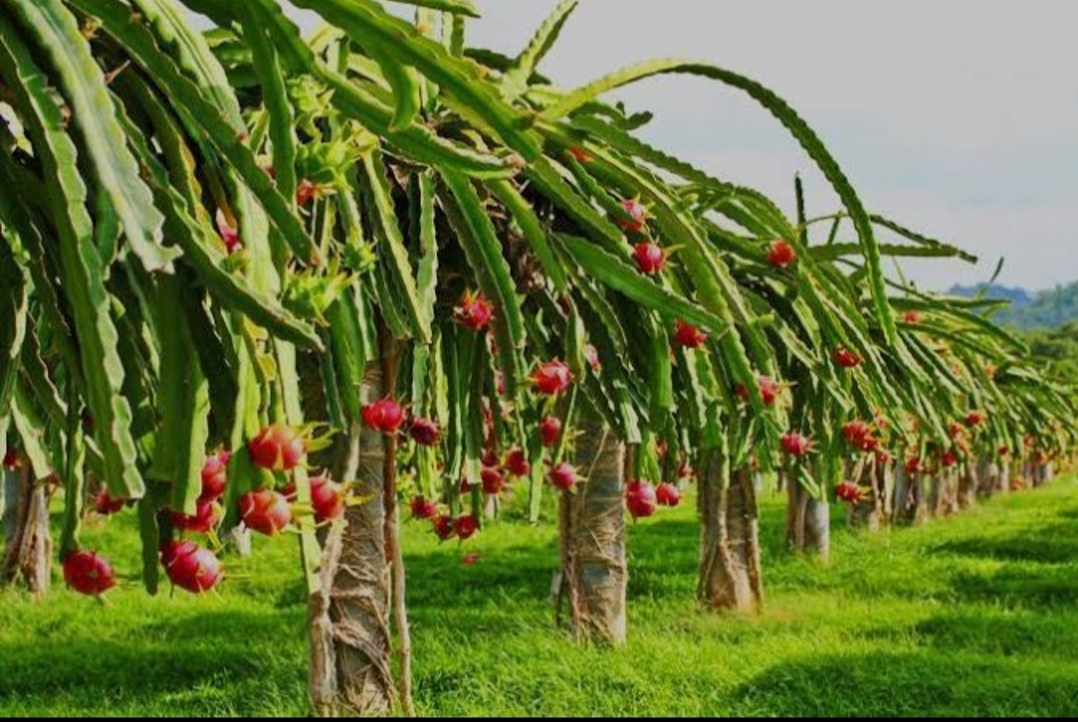News Flash

By S M Zahid Hossain
KHULNA, May 16, 2025 (BSS) - Educated youths in Khulna have become self-reliant through cultivating dragon fruit as this tropical fruit got huge popularity among the people with its high nutritional value.
Atiar Rahman, 40, a postgraduate from Bangladesh Agricultural University, has become self-reliant through successful dragon fruit farming in Dumuria upazila of Khulna.
Atiar completed his studies in 2010; he does not want to build his career in traditional way. The young man wanted to become a self-reliant utilizing his talent and subsequently he has been successful through cultivating dragon fruit.
A resident of Mechoghona village in Dumuria, Atiar had initially planned during his student life to cultivate tiger shrimp on his father's three acres of fallow land. However, due to environmental damage caused by shrimp farming-such as soil degradation and pollution - he switched to dragon fruit farming around a decade ago.
Speaking to BSS on Thursday, Atiar said he invested around Taka 12 lakh per acre to set up his dragon fruit farm. He said, "It takes around 16 to 17 months from planting to harvest."
He added that he now earns over Taka 50 lakh annually and employs 30 to 35 educated youths.
"We sell dragon fruit to wholesalers at Taka 400 to 500 per kg, while the retail price in local markets ranges from Taka 500 to 600. In Dhaka, it often sells for Taka 700 to 800 per kg," he noted.
Inspired by Atiar's success, many educated youths in Dumuria and other parts of the district have also begun cultivating the fruit.
Abdul Hamid, another farmer from Baratiah village in Atlia Union under the same upazila, has turned to dragon fruit cultivation on two acres of land.
With the support from the development organization Nobolok Parishad, he adopted the drip irrigation method, showcasing an effective model of modern agriculture and achieved notable success in a short time.
"Selecting well-drained, fertile land is key to cultivating dragon fruit. The soil must be ploughed two to three times and levelled properly," Hamid said.
Md Insad Ibne Amin, Agriculture Officer of Dumuria Upazila, said drip irrigation offers sustainable benefits amid climate change.
"Irrigation has become more challenging in the Khulna region due to erratic rainfall. Drip irrigation is a smart solution and is especially suitable for high-value crops like dragon fruit," he added.
Talking to BSS, Md Rafiqul Islam, Additional Director of the Department of Agricultural Extension of Khulna Region, emphasized the advantages of drip irrigation, saying this method can save up to 70 percent of water and 50 percent of electricity, along with reducing labour costs. It ensures better plant growth and increased yield.
Rafiqul Islam added the fruit is high in fibre, aids digestion, and helps reduce body fat and requires minimal maintenance. Its growing popularity is attracting more farmers.